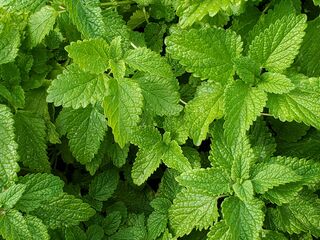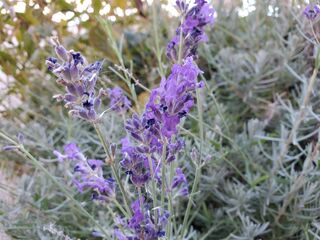

Key points
- Research studies on lemon balm and lavender confirm their calming properties.
- Herbs are slower acting but have much fewer side effects than most prescription medications.
- Lemon balm and lavender are both medicinal and culinary herbs.
Herbs were used for stress, anxiety, and sleep for generations, long before pharmaceuticals were introduced and commonly used. Herbs are slower acting but have much fewer side effects. There are many herbs that can help with stress, anxiety, and sleep, such as lemon balm, lavender, valerian root, passionflower, chamomile flowers, hops, ashwagandha, kava kava, etc. Most of them can be used in the form of tea, drops, capsules, and essential oils. You can also grow most of them in your backyard or in a pot outside or inside on a windowsill.
Most herbs are weeds, which is a source of their potency. They can survive in all kinds of soil, weather, and temperatures, and some, such as peppermint, can spread rapidly, taking over your garden. When you grow them yourself, you save a lot of money and have them available all the time when you need them.
In today’s post, I cannot cover all of them; therefore, I will concentrate on my favorite two, which are lemon balm and lavender. Both are medicinal and culinary herbs. Lemon balm and lavender from my garden are my favorite anti-stress remedies. It is quite interesting that although they do not look alike at all, they both are in the same mint family (Lamiaceae).

Source: Barbara Koltuska-Haskin
Lemon balm
Lemon balm (Melissa officinalis) is a bushy perennial herb. It looks like oversized mint, but unlike its botanical cousin, peppermint, it is not invasive. The blue-green leaves have a wonderful lemon-scented fragrance.
Lemon balm can be used as a mild sedative. It also has calming, mood regulation, and cognitive function enhancement properties. Research studies showed that lemon balm has antioxidative and neuroprotective properties. As a culinary herb, it can be used in salads and fish seasoning, but use it sparingly because it is very fragrant.

Source: Barbara Koltuska-Haskin
Lavender
Lavender (Lavandula) is a small lilac or blue flowering shrub that has 47 known species. If you have a yard, you probably grow English, French, or Spanish lavender for their “heavenly and calming” aroma. It can live 20-30 years. Studies suggest that it helps relieve stress and may help with sleep, depression, and chronic pain. It is commonly used in soaps and cosmetics, and it can also be used in your favorite dishes and salads.
How to use lemon balm and lavender
For relaxation, lemon balm and lavender plants can be very helpful. They grow well and are carefree, except for watering when the soil is dry, which isn’t often. You can buy small plants in local nurseries and plant them in a pot or in your garden.
When you feel stressed, pick a couple of leaves or flowers of lemon balm or lavender. Sit in a quiet place and rub the leaves or flowers between your hands. Then inhale their beautiful smell slowly, several times. It will relax you. Try it.
I have a few other suggestions. My friend uses lavender essential oil in a spray to help her children fall asleep, and she swears it works. I use lavender in my office to help my anxious patients feel more relaxed. I make lavender buckets from my garden lavender when it’s in bloom and place them in flower arrangements around my office. I also sometimes spray lavender oil around me at the end of a long and stressful workday. It instantly makes me feel better.
A word of caution. If you are taking prescription medication, always ask your doctor if you can take specific herbs because some herbs can interfere with your prescription medications. If you are not taking any meds, using them once in a while in the form of tea or aromatherapy when you have a bad day is quite safe. However, if you want to use them on a regular basis, you need to do it under the care of a holistic physician or a DOM (doctor of oriental medicine) to make sure that you are taking the right amount of the herbal supplement for your conditions.
This article was originally published on Pyschology Today. Copyright by Dr. Barbara Koltuska-Haskin.

Barbara Koltuska-Haskin, Ph.D., is a neuropsychologist in private practice in Albuquerque, New Mexico with over 30 years of clinical experience, and the author of How My Brain Works: A Guide to Understanding It Better and Keeping It Healthy. Her book has won 2 International Book Awards and 3 National Book Awards.
Below is an excerpt for Online Book Club Member’s Review:
“This book is written in a very simple and easy to understand fashion. Concepts and ideas are not hindered by heavily worded grammar or big unfamiliar medical terms. I was so interested in each section as I read that I didn’t want to put it down until I was finished. I actually downloaded the audio version of this book as well and listened to a few chapters more than once. “





Comments
Post a Comment